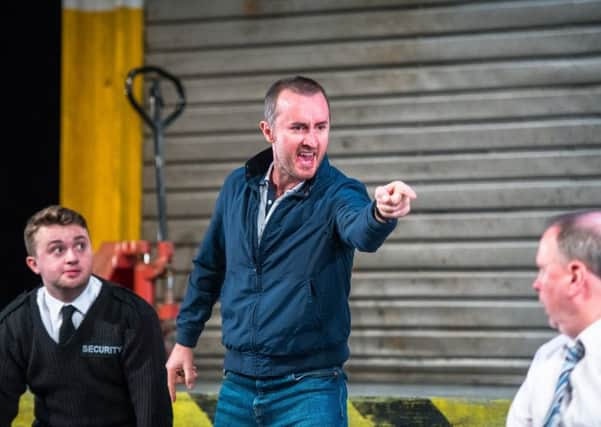Theatre review: Gagarin Way


Dundee Rep ****
In the apparent absence of that old alternative to capitalism, though, the show’s two prime movers – factory workers Eddie and Gary – have decided to take direct action, and express their feelings of rage and dispossession by kidnapping and slaughtering an international consultant who has arrived in Fife to assess the viability of the factory.
The brilliance of Burke’s play lies in the clarity and vividness with which he explores the dynamics among the four characters, including naive post-student security guard Tom, and kidnapped consultant Frank, as well as would-be revolutionary Gary, and Eddie, the dedicated man of violence whose famously comic interest in the nihilism of Jean-Paul Sartre turns out to be far from academic; and all of this is captured with searing sharpness in Cora Bissett’s brisk and timely Dundee Rep production, which features impressive performances from Michael Moreland, Barrie Hunter and Ross Baxter as Gary, Frank and Tom, and an outstanding one from a cold-eyed Ewan Donald as Eddie.
Advertisement
Hide AdThe message of the play is clear; that if capitalism continues on the brutal neoliberal path described by Frank, then responses to it will become steadily more violent, unpredictable and extreme. And if, 17 years on, the play seems more devastatingly sad, and a little less comic, than in August 2001, that’s perhaps only a measure of the change we’ve seen, from the apparent lightness of this play’s opening, to the true darkness of its end.
JOYCE MCMILLAN
Until 3 November.